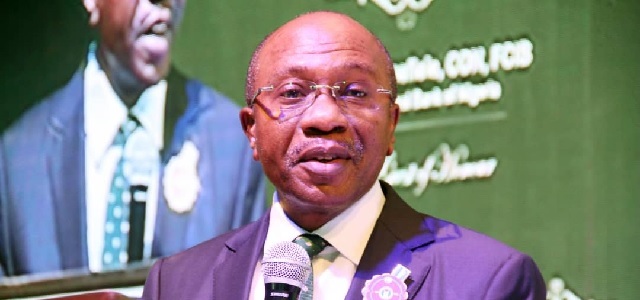
As widely expected, the Monetary Policy Committee (MPC) of the Central Bank of Nigeria (CBN), on Tuesday, unanimously voted to retain the benchmark Monetary Policy Rate (MPR) at 11.5%; and the asymmetric corridor of +100/-700 basis points around the MPR.
At the end of the two-day meeting, the first for the year 2021, the committee’s 12 members, once again “confronted with a policy dilemma as to whether to aggressively combat the inflationary pressure or support measures currently aimed at stimulating growth and reversing the recession,” also voted to retain the CRR at 27.5%; and Liquidity Ratio at 30%.
In a communiqué issued at the end of the meeting, and signed by Godwin Emefiele, the CBN Governor and chairman, the committee opted to pursue its current “stance of systematic synchronization of monetary and fiscal policy accommodation through its developmental finance initiatives, aimed at mitigating the impact of the COVID-19 pandemic on Nigerians.”
The obvious choice, it noted, was between inflation targeting, or the nation’s contracting output, and that with the economy currently in a stagflation environment, the MPC resolved to “continue pursuing price stability in growing the economy,” even where “there may be wisdom in loosening.”
This, it added, is “given that the impact of the global Covid-19 pandemic has resulted in constrained activities, disruption to supply chain and suppress aggregate demand, an accommodative stance may be required to stimulate credit expansion and boost recovery in the short term.”
The committee, he continued, also reasoned “that an expansionary policy would enable the monetary authorities convince the financial institutions to reduce loan pricing and defer interest and principal repayments to critically affected obligors in a sustainable manner.
“On the flip side, MPC also opined that an aggressive expansionary stance may worsen both inflation and the negative real interest rate, thereby resulting in negative consequences on exchange rate.”
Tightening, the MPC concluded, “may run contrary to its objectives of providing affordable credit to households, MSMEs, Agriculture, and other output growth and employment stimulating sectors of the economy.”
The committee, Emefiele continued, said aggregate domestic credit rose further by 13.4% in December 2020, from 9.48% in the previous month, driven “largely attributed to the bank’s policy on Loan-to-Deposit Ratio (LDR), complemented by its interventions in various sectors of the economy.”
In specific terms, banking sector gross credit as at end-December 2020 stood at N25.02tr compared with N24.25tr at the end of November 2020, representing an increase of N774.28bn.
As part of its real sector interventions, under the Anchor Borrowers Programme (ABP), the CBN said N554.63bn had been disbursed to 2,849,490 beneficiaries since the inception of the programme, of which N61.02bn was allocated to 359,370 dry season farmers.
Emefiele said the on-going synchronized efforts by the monetary and fiscal authorities to mitigate the impact of the COVID-19 pandemic, have seen the CBN disburse N2.0tr as of January 2021.
Of this amount, the apex bank has disbursed N192.64bn to 426,016 beneficiaries under the COVID-19 Targeted Credit Facility (TCF) meant for household and small businesses; and another N106.96bn to 27,956 beneficiaries under the AgriBusiness Small and Medium Enterprises Investment Scheme (AGSMEIS). Also, under the Health Care Support Intervention Facility, he said a total of N72.96bn have been disbursed to 73 projects, comprising 26 pharmaceutical projects and 47 Hospitals and Health Care Services Project in the country; among others
The MPC noted the marginal increase in the Non-Performing Loans (NPLs) ratio to 6.01% at the end of last month, from 5.88% at end-November, which is still above the 5% prudential maximum threshold, a development it noted, is expected under the prevailing circumstances. It however urged the CBN “to strengthen its macroprudential framework to bring NPLs below the prescribed benchmark.”
The committee also urged the apex bank “to sustain its current drive to improve access to credit to the private sector while exploring other complementary initiatives, in collaboration with the Federal Government, to improve funding to critical sectors of the economy.












